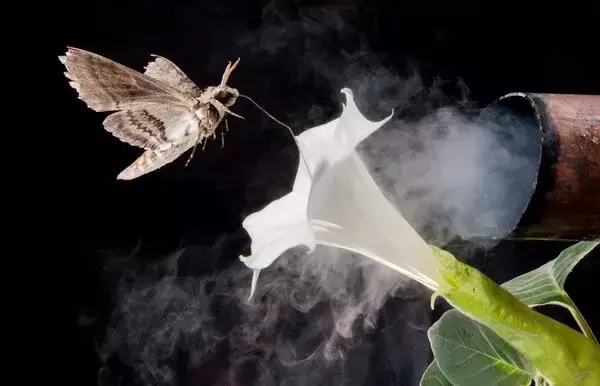Air Pollution Affects Flower Smell, Too

Air pollution may be making it harder for some flowers to send out scent signals to some pollinators, new research shows. A first-of-its-kind study published in Science on Thursday looks at how the scent of the pale evening primrose, a flower native to the western U.S. and Canada, is affected by common pollutants released by fossil-fuel combustion. The study finds that the species of moths that usually pollinate the primrose have a harder time flying towards its scent when exposed to levels of NO3, a pollutant found in car exhaust, usually found in cities at night. “We worry a lot about exposure of humans to air pollution, but there’s a whole life system out there that’s also exposed to the same pollutants,” Joel Thornton, an author of the study, told the New York Times. “We’re really just uncovering how deep the impacts of air pollution go.” (New York Times $, Washington Post $)
To receive climate stories like this in your inbox daily click here to sign up for the Hot News Newsletter from Climate Nexus:


